
Emotional Intelligence for Project Managers
Second Edition

Bulk discounts available. For details visit:
www.amacombooks.org/go/specialsales
Or contact special sales:
Phone: 800-250-5308
E-mail:
View all of the AMACOM titles at: www.amacombooks.org
American Management Association: www.amanet.org
This publication is designed to provide accurate and authoritative information in regard to the subject matter covered. It is sold with the understanding that the publisher is not engaged in rendering legal, accounting, or other professional service. If legal advice or other expert assistance is required, the services of a competent professional person should be sought.
Library of Congress Cataloging-in-Publication Data
Mersino, Anthony.
Emotional intelligence for project managers : the people skills you need to achieve outstanding results / Anthony Mersino. Second edition.
pages cm
Includes bibliographical references and index.
ISBN 978-0-8144-3277-8 (alk. paper) ISBN 0-8144-3277-8 (alk. paper) 1. Project managementPsychological aspects. 2. Emotional intelligence. 3. Teams in the workplaceManagement. I. Title.
HD69.P75M475 2013
658.404019dc23
2012051364
2013 Anthony C. Mersino
All rights reserved.
Printed in the United States of America.
This publication may not be reproduced, stored in a retrieval system, or transmitted in whole or in part, in any form or by any means, electronic, mechanical, photocopying, recording, or otherwise, without the prior written permission of AMACOM, a division of American Management Association, 1601 Broadway, New York, NY 10019.
The scanning, uploading, or distribution of this book via the Internet or any other means without the express permission of the publisher is illegal and punishable by law. Please purchase only authorized electronic editions of this work and do not participate in or encourage piracy of copyrighted materials, electronically or otherwise. Your support of the authors rights is appreciated.
About AMA
American Management Association (www.amanet.org) is a world leader in talent development, advancing the skills of individuals to drive business success. Our mission is to support the goals of individuals and organizations through a complete range of products and services, including classroom and virtual seminars, webcasts, webinars, podcasts, conferences, corporate and government solutions, business books and research. AMAs approach to improving performance combines experiential learninglearning through doingwith opportunities for ongoing professional growth at every step of ones career journey.
Printing number
10 9 8 7 6 5 4 3 2 1
Contents



Appendixes
Acknowledgments
Writing a book was a lot more work than I imagined, and it is not something that I could have done on my own. I am extremely grateful to all those people who graciously invested their time and energy to help me with my emotional growth and with this book.
The support of two published authors eventually convinced me to start writing. Jim Taylor gave me the idea to write on emotional intelligence and project management. Rajesh Setty was instrumental in pointing out that I was better off to begin writing than to continue planning to write.
Rich Blue and Nancy Rollins of the Center for Life Enrichment taught me about emotions and how to recognize what I was feeling. I am particularly grateful to Rich for his continued unwavering belief and constant encouragement during my personal growth work. He has been behind me 100% since I first met him in 2001. I have been part of several powerful support groups at the Center for Christian Life Enrichment (CLE). Group participants taught me about relationships and leadership, and they pushed me to do my very best. My coed group included Meredith, Laura, Beth, Tom, Jo, Mike, Kim, Jane, and Barry. Ramp it up, guys! My mens group included Tim, Barry, Rick, Bill, Cortney, Stephen, Tim, Neale, Dennis, and Jim. My brother Ted also helped me to define how to apply emotional intelligence to project management.
For the first edition, my editor Christina Parisi, was a tremendous help in writing something that made sense to others. Steve Cohn was also a great coach and an inspiration during the writing process. Jim Friel, Chris Samp, Don Knapp, Barbara Brown, and various others read early chapters and provided valuable feedback and encouragement.
I would be remiss not to recognize the tremendous support of my family. Both my daughter Krista and my son Jack are creative inspirations to me and a source of positive energy. They have a higher EQ now than I had just 10 years ago! They have been terrific about giving me the space to write this book at home and have not complained (much) when I wasnt able to attend some school or sporting event.
I have to thank God. I am grateful to Him for surviving my childhood and for the ability to write despite getting a D in English in High School. God also planted in me a hunger to learn and to grow and become a better person. It is only through His grace that this book has come to fruition.
Finally, and most important, I want to thank my wife Norma. She has been my partner for nearly 20 years, and I know that she has my back in all that I do. She has given me the space to write, the encouragement to excel, and has taken care of our kids and house so that I had few distractions and obstacles. She partnered with me in my personal growth and therapy work and didnt ask me to do what she wasnt doing herself. She has also pushed me to be a better husband and man, and I am grateful that she continues to challenge me and expect great things from me. I love you Norma!
PART
An Introduction to Emotional Intelligence
My Growth in Emotional Intelligence
 A Dangerous Situation
A Dangerous SituationDo you have any idea how dangerous it is not to be in touch with your feelings? This question was posed to me in the summer of 2001 by Rich, a therapist who has since become my career coach and mentor. His words stopped me in my tracks. Dangerous? That was a curious word choice. What could be dangerous about not being in touch with my feelings? I was thirty-nine years old and had been a successful project manager (PM) for over seventeen years. I had a record of slow but steady career progression. I had been certified as a Project Management Professional (PMP) since 1995. I owned my own project management consulting business and lived, taught, and even breathed project management. No one had ever asked me about feelings before. No one had ever mentioned that there might be danger involved. What could be dangerous? What was so important about feelings?
Richs question resonated with me, but I wasnt sure why. It didnt feel dangerous to be out of touch with my emotions. However, I had a nagging sense that he saw or knew things that I didnt. On some level I recognized that the way I approached work wasnt always effective. Hard work did not always make the difference in the outcomes of the projects I managed. I wondered how others seemed to succeed with less effort. I also felt insecure about the lack of personal and professional relationships I had built, and I suspected that it was hurting me. As much as I wanted to deny that my career and relationship challenges might be related to my emotions, I began to suspect that Rich might be right.
Next page
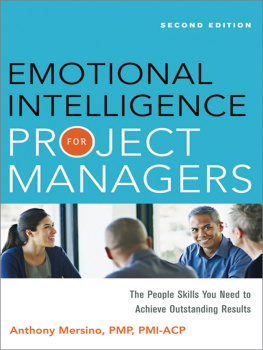
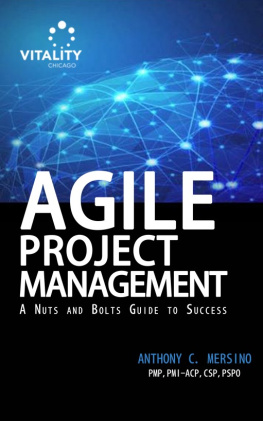
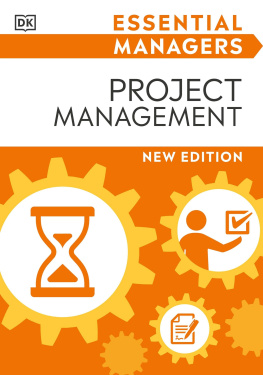
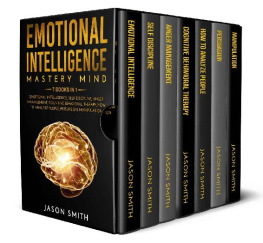
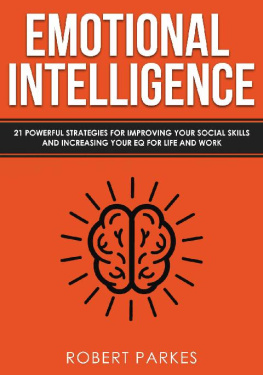

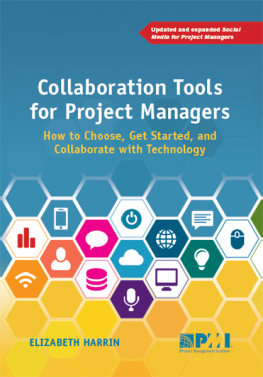
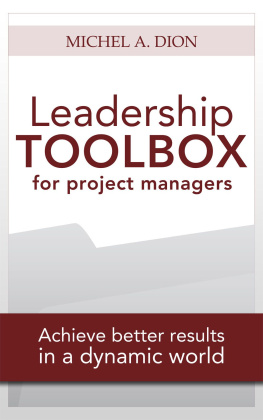



 A Dangerous Situation
A Dangerous Situation